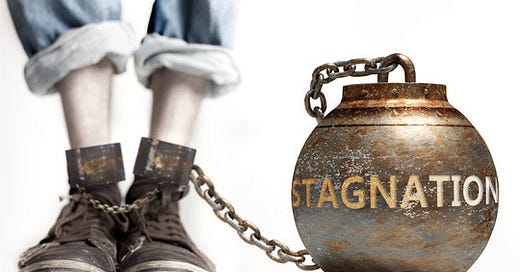Last month, I posed the following challenge on Twitter:
The last 25 years have delivered amazing economic and technological progress for humanity.
*Political* progress, in contrast, is hard even to detect during this period.
What political change on Earth since 1996 has been even 2% as wonderful as the collapse of Communism?
— Bryan Caplan (@bryan_caplan) February 10, 2021
The responses mostly confirmed my political pessimism. After all, the collapse of Communism did not merely greatly increase the freedom and prosperity of the subjects of the former Soviet bloc; it also drastically reduced the risk of World War III, along with Soviet-backed and Soviet-inspired military strife across the Third World. What political changes since then remotely compare?
1. As the author of The Myth of the Rational Voter, I’m a “one cheer for democracy” kind of guy. Still, the best responses to my challenge pointed to the continuing rise of democracy. Arthur Baker pointed to the modest rise in the number of democracies (and corresponding modest fall in the number of autocracies). Jeremy Horpedahl pointed to the rise in the share of people worldwide living under democracy. But Our World In Data also shows an absolute fall in the number of liberal democracies. The number of closed autocracies fell, but by most counts China’s has grown markedly more despotic during this quarter century. So while I wouldn’t dismiss the democracy answer out of hand, I’d say that if these gains exceeds my 2% threshold, they don’t exceed it by much.
2. A few other respondents pointed to immigration liberalization: the Schengen zone, EU expansion, and rising immigration to the U.S. and Western Europe. While I consider these steps in the right direction, the magnitudes arevery modest. Generously speaking, global borders moved from 98% closed to 97% closed. I’m open to the idea that moving to 0% closed borders would be as good as the Soviet collapse, so perhaps the immigration changes we’ve experienced are roughly 1% as good as the Soviet bloc. But it takes some effort to believe that open borders would be twice as good as the Soviet collapse. To repeat, the Soviet collapse did much more than merely free the victims of Soviet tyranny; it lifted the specter of World War III for the whole planet. So again, I doubt actually-existing immigration liberalization exceeds my 2% value cutoff.
3. A few respondents hailed the fall in world poverty and so on. All this would of course fall under the heading of amazing “economic and technological progress.” The same goes for Bitcoin, another popular answer, though it’s hard to see that it noticeably improved the quality of life for even 1% of the global population. Humanity can and does enjoy economic and technological progress despite political stagnation.
4. Finally, respondents named a grab bag of newspaper headlines: Brexit, Tunisian democracy, increasing gay rights, multi-party democracy in Mexico, higher transparency, and so on. None of these strike me as plausible candidates. Remember: Almost everything is small from a global perspective. The Soviet collapse dramatically improved the lives of billions, though most of them probably never realized what they gained. To be in the running, then, your change would have to dramatically improve the lives of tens of millions. Increasing gay rights is the most credible contender, but how much of the improvement there comes from actual political reform rather than cultural evolution?
Overall, then, the responses to my query strengthened my conviction that global politics has been basically stagnant for a quarter century. The world keeps getting better. We have more stuff. We know more stuff. We even treat each other better. But since the burst of progress in my youth, the quality of global politics has been, like Han Solo, frozen in carbonite.
The post appeared first on Econlib.





Could be worse! If politics merely stays the same forever while technology keeps improving, that seems like it could be a pretty great outcome.
As illustrated by the governmental responses to Covid, we are moving in the wrong direction: away from freedom and toward centralized global authoritarianism. Our “liberal democracy” is largely fictional, propagandized by our Ruling Elites to provide the illusion of popular sovereignty. Even the West (or the Greater American Empire) has little more freedom than the “democracy” in Hong Kong, where citizens vote on a selection of candidates approved by the Party.